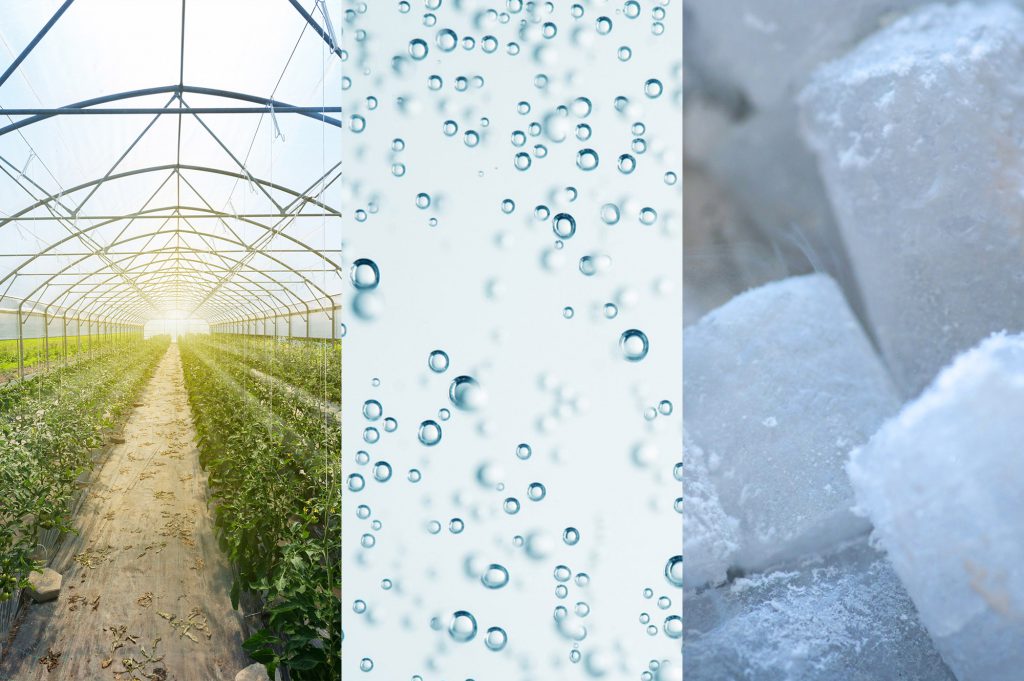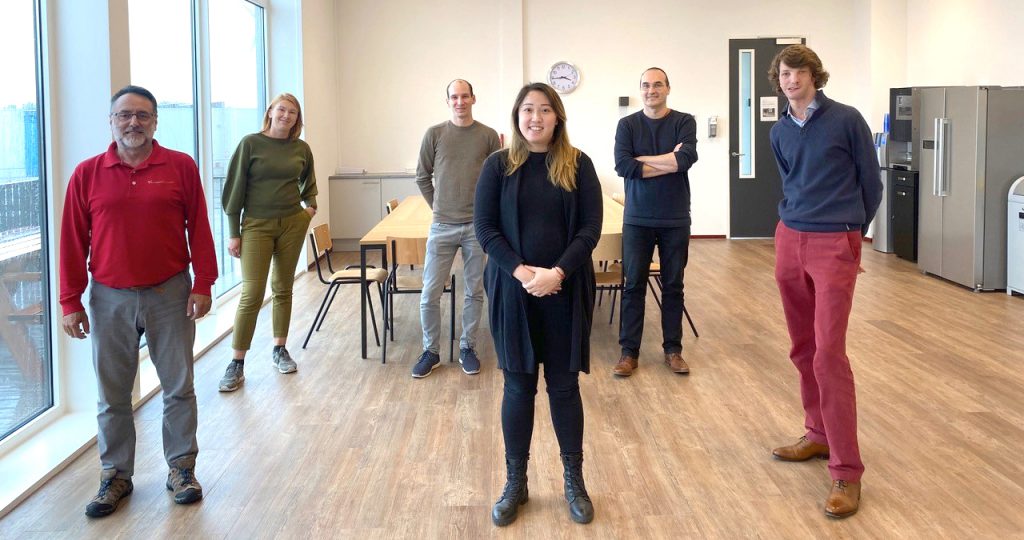Contributing to a sustainable living requires commitment to turn this into a reality. For Alco, being a sustainable pioneer means improving and innovating the production process wherever feasible.
Increasing energy efficiency and capturing as much CO2 as possible are our hallmarks. And a dedicated team of experts is in charge of all sustainability elements of our production process.
Energy efficiency
Increasing energy efficiency is high at Alco’s agenda. By combining heat and power production (cogeneration) Alco is making optimal use of the energy consumed. Yearly investments in tweaking and fine-tuning the production process results in a constant improvement of the energy efficiency.
CO₂ capture and utilization
By capturing the CO2 resulting from the fermentation process and using it elsewhere the carbon footprint of Alco’s ethanol is lowered substantially.
The biogenic CO2 is used in various sectors where it will replace fossil-based CO2 and as result prevents more CO2 being released in the air.
Thanks to this innovative capturing and use of CO2 Alco’s ethanol achieves a Greenhouse Gas emission saving of well above 90% compared to the GHG emission of gasoline.
Alco captures at its two production sites around 500 thousand tons of CO2 on a yearly basis.

Green Team
Sustainability being one of the core drivers of Alco, a Green Team was set up.
This team safeguards sustainability principles to deliver the highest greenhouse gas (GHG) savings. It contributes to the efforts of climate neutrality for Alco by 2030.
The team designs uniform procedures around sustainability , oversees internal compliance with these procedures, and provides support for the various technical teams within the Group on GHG calculations following changes in the production process.
The Green Team also prepares the yearly ISCC (International Sustainability and Carbon Certification) audits and follows actively the regulatory developments at EU and national level.

Alco’s Climate Plan
As Sustainable Pioneers our ambition is to steer our bio-refineries towards climate neutrality. To achieve this, we’ve developed a comprehensive Climate Plan featuring several concrete actions. What does this plan contain?
Action 1: Biogenic CO2 capture
At our bio-refineries in Ghent and Rotterdam we capture and reuse the biogenic CO2, released during the fermentation process, which replaces fossil-based CO2 traditionally used in greenhouses, refrigerated transport, and sparkling beverages. The biogenic CO2 was initially absorbed from the air by the crops we use as raw material, during their growth via photosynthesis: a short cycle of one year, unlike fossil sources. Thanks to our ongoing technical and commercial efforts, we are continually increasing the volume of CO2 captured
Action 2: Energy efficiency
We invest annually in significant energy-saving programs, aiming to reduce our natural gas consumption by 30% compared to 2021 levels. Before 2030, our bio-refineries should capture more biogenic CO2 than CO2 generated using fossil gas.
Action 3: Renewable energy sources
We are actively working on multiple projects to replace natural gas with renewable energy sources, such as green steam generated from biomass waste, wind, and solar electricity.
Other initiatives:
- Studying renewable and low carbon e-fuels production projects (combining biogenic CO2 and hydrogen)
- Exploring the possibility to capture our remaining fossil CO2 and store it for example in North Sea empty gas fields (enhancing further the reduction in our carbon footprint)
- At Alco’s headquarters in Brussels, we started in 2021 independent audits for CO2 emissions generated by our corporate activities.
- Our office is undergoing a major transformation process to join the top 15% most efficient office buildings in Brussels.
- Alco also sponsors the Belgian Société Royale Forestière in a long-term research and reforestation program.
